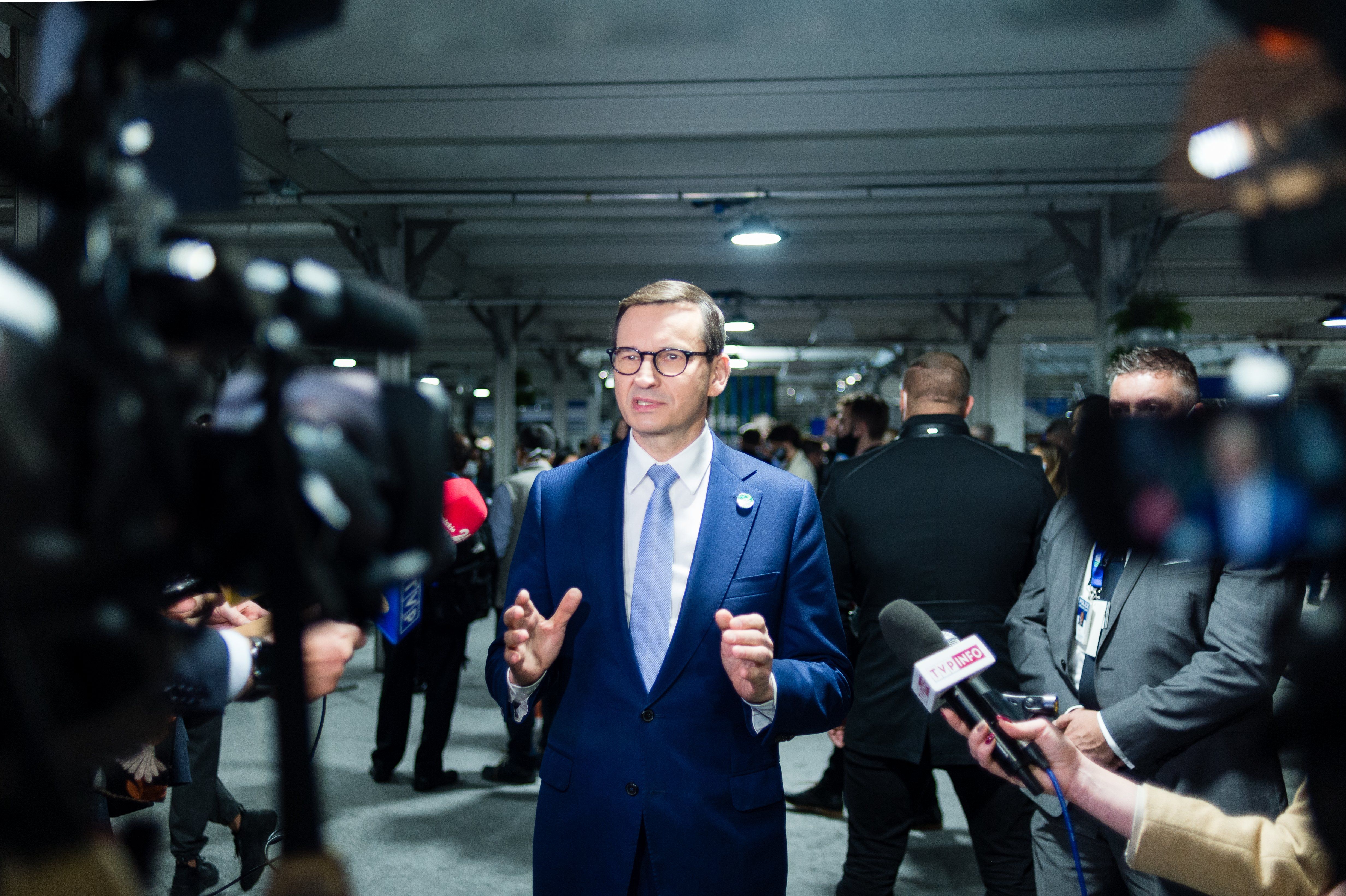Case in point: Aware that his Law and Justice Party faces a stiff challenge this fall from the opposition Civic Platform, Poland’s Prime Minister Mateusz Morawiecki announced plans on Sunday to add the following question to the national election ballot for October 15:
“Do you support the admission of thousands of illegal immigrants from the Middle East and Africa under the forced relocation mechanism imposed by the European bureaucracy?”
If the wording of that question doesn’t make clear which side the prime minister is on, he accompanied the announcement on social media with a video image of a Black man licking a knife, followed by the question, “Do you want to cease being masters of your own country?”
During the height of Europe’s refugee crisis in 2015-2016, the governing Law and Justice Party managed to close Poland’s borders to migration from Africa and the Middle East, though it has welcomed more than three million Ukrainians who have fled Russia’s invasion of their country. More than a million Ukrainians are still there.
Former prime minister Donald Tusk, now leader of the more immigration-friendly opposition, says the referendum idea shows the governing party is running scared and needs an election gimmick to win.More For You
How is the US is reshaping global power dynamics, using tariffs and unilateral action to challenge the international order it once led? Michael Froman joins Ian Bremmer on GZERO World to discuss.
Most Popular
In this Quick Take from Munich, Ian Bremmer examines the state of the transatlantic alliance as the 62nd Munich Security Conference concludes.
At the 2026 Munich Security Conference, Brad Smith announces the launch of the Trusted Tech Alliance, a coalition of global technology leaders, including Microsoft, committing to secure cross-border tech flows, ethical governance, and stronger data protections.
